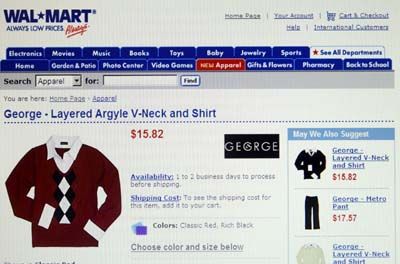How does a fast-food restaurant choose the best wrapper for a hamburger? What do retailers do to find out how customers feel about shopping in their store? How can politicians be sure about people's views on their candidacy and issues? Why do newspapers choose the type size, store placement and images they do? These companies don't just guess how their customers feel. They use focus groups.
A focus group is a targeted group of consumers who are brought together for an in-depth discussion on a certain topic. Businesses and organizations rely on focus groups to obtain feedback on their products and services. Focus groups can be particularly useful in:
Advertisement
- Understanding how consumers view your brand
- Understanding how consumers in a particular category think
- Providing input on advertising campaigns
- Exploring the purchasing habits of customers
- Generating ideas on how to solve a problem or fill a need in a product category
- Assessing employees' attitudes about their companies
In this article, we'll look at how focus groups are conducted, including the limitations and advantages of focus group research. We'll also see how some marketing executives are moving from traditional focus groups to an online setting.
Unlike surveys or polls that produce quantitative, number-driven data, focus groups provide more in-depth, qualitative insights into a topic and collect a range of information. Focus groups typically include six to 12 people, and participants receive anywhere from $25 to $200 to reimburse them for their time and travel expenses. Group members are selected based on certain characteristics or demographic information, such as age, race, income and usage of the product. Companies give screening questionnaires to ensure they select the target audience.
Moderators lead the groups and try to stimulate discussion without saying too much about what they want to hear. The moderator keeps the participants focused on the topic, involves all the participants and encourages group members to react to each other's comments.
Moderators work from a guide with an outlined discussion plan. The sessions typically last from 90 minutes to two hours. The number of focus groups varies, depending on the topic. Some only hold a handful, while others could have 20 or more. The goal is the amass opinions to identify the trends.
The format of focus groups remains similar throughout the industry.
- The moderator starts by introducing attendees to make them feel at ease.
- The moderator next presents the topics to be addressed during the session.
- Then the moderator introduces topics that are more specific and may introduce props such as product samples or pictures.
- To wrap up, the moderator restates key discussion points and may ask participants to write down their conclusion.
During the sessions, clients may observe the group from behind one-way mirrors. Based on the discussion, clients may feed new questions to the moderator. After the session, the moderator gives the client a videotape or audiotape along with an analysis of the focus group results.
In the next section, we'll look at the pros and cons of focus groups.
Advertisement





